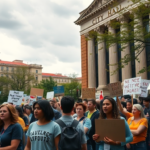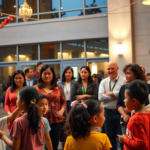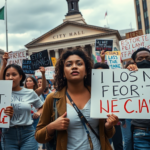Yale Nears Landmark Deal to Divest $2.5 Billion in Private Equity Stakes Amid Tax Concerns
As Yale University progresses towards finalizing a monumental divestment of up to $2.5 billion in private equity and venture capital assets, the Ivy League institution prompts discussions across financial and academic communities. Known as “Project Gatsby,” this strategic move is reportedly in response to anticipated changes in tax policies, with the overall sale expected at a discount of less than 10%, despite some portfolio valuations indicating potential haircuts up to 15%.
Yale’s Endowment: A Pioneer in Private Investment
For years, Yale’s endowment has been regarded as a trailblazer in the sphere of private equity and venture capital, influencing countless other institutions in adopting similar investment strategies. This caliber of influence places Yale’s current decision under a spotlight, inviting speculation and analysis from financial experts and university communities alike. With confidentiality shrouding the transaction’s specifics, individuals privy to the negotiations have disclosed scant details, opting for anonymity due to the private nature of the discussions.
Bloomberg, a notable provider of business and financial information, offers a range of services that contextualize this development, considering it delivers insights into markets, technology, and economics. By connecting potent decision-makers with accurate, timely information, Bloomberg’s financial networks prove essential in understanding the broader implications of transactions like Project Gatsby.
The Financial Landscape’s Reaction and Perspectives
In the broader financial sphere, Yale’s divestment points towards a careful consideration in navigating upcoming tax landscapes. Dr. Ronald Grayson, a financial analyst based in Connecticut, suggests that institutions might strategically realign portfolios under changing economic conditions. “Yale’s move is a testament to proactive asset management in anticipation of fiscal changes,” he remarked. “It showcases robust forward-planning capabilities while maintaining focus on long-term endowment goals.”
However, local community stakeholders question how such transformations might ripple through the local economic ecosystem. Angela Rodriguez, a New Haven resident and economics graduate student, reflects apprehensively. “While strategic investment transformations suit financial longevity, it’s crucial these institutions remain engaged with their communities. We need transparency on how local collaborations and initiatives may evolve post-transaction,” she noted.
Local Impact: Community and Educational Implications
The direct implications for New Haven and neighboring communities emerge as vital considerations in interpreting the asset sale. As one of the largest institutions rooted in this region, Yale’s economic and academic policies hold broad implications on residents, affecting both property investments and localized educational opportunities. The revenue gleaned from these financial strategies can guide investments in educational infrastructure, specifically through increased facilities enhancements and scholarships.
Jim O’Neill, a former Yale faculty member and now local affairs analyst, emphasizes the need for maintaining community allegiance. “Yale’s role in New Haven extends beyond academia. Their decisions echo through economic corridors, impacting local policy, employment opportunities, and city development projects. Ensuring these financial maneuvers reinforce community values is paramount,” he commented.
Future Steps: Transparency and Responsibility
As Yale approaches the conclusion of this significant financial endeavor, the broader community holds interest in future steps. Ensuring continued transparency and responsible community engagement emerge as priorities. This strategic shift prompts conversations on how institutions of Yale’s prominence can balance financial stewardship with societal responsibilities.
Balancing such ambitious financial goals with a commitment to local engagement can serve as a paradigm for other similarly positioned entities contemplating asset realignment. Continued collaboration with residents could ensure that financial successes translate directly into inclusive economic growth, ultimately driving both institutional and regional prosperity.
For community members seeking detailed insights or who wish to express concerns, engagement channels, such as local forums and online informational resources facilitated by Yale’s administration, promise to broaden dialogue avenues.
Conclusion: Navigating Strategic Shifts with Community Interest
In navigating the complexities of Project Gatsby, Yale University signals its capacity for dynamic financial adaptability while positioning itself for a future that considers both global financial narratives and localized obligations. As the community observes the unfolding developments, the effects of such strategic decisions on local impact and residents’ everyday experiences underscore a broader narrative—one where academia, finance, and community interest converge.
In encapsulating this story’s journey, Woke News pledges to continue reporting on evolving impacts within the community, fostering transparent conversations on institutional prioritization and its long-term, multifaceted effects.







